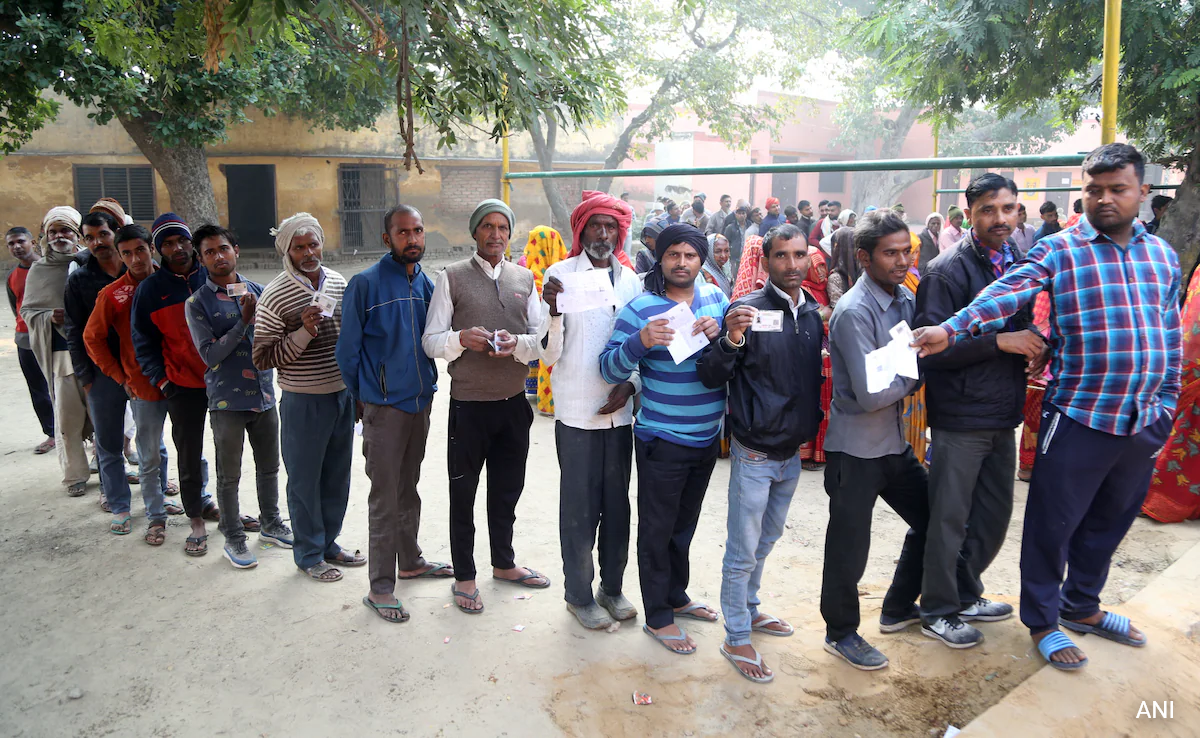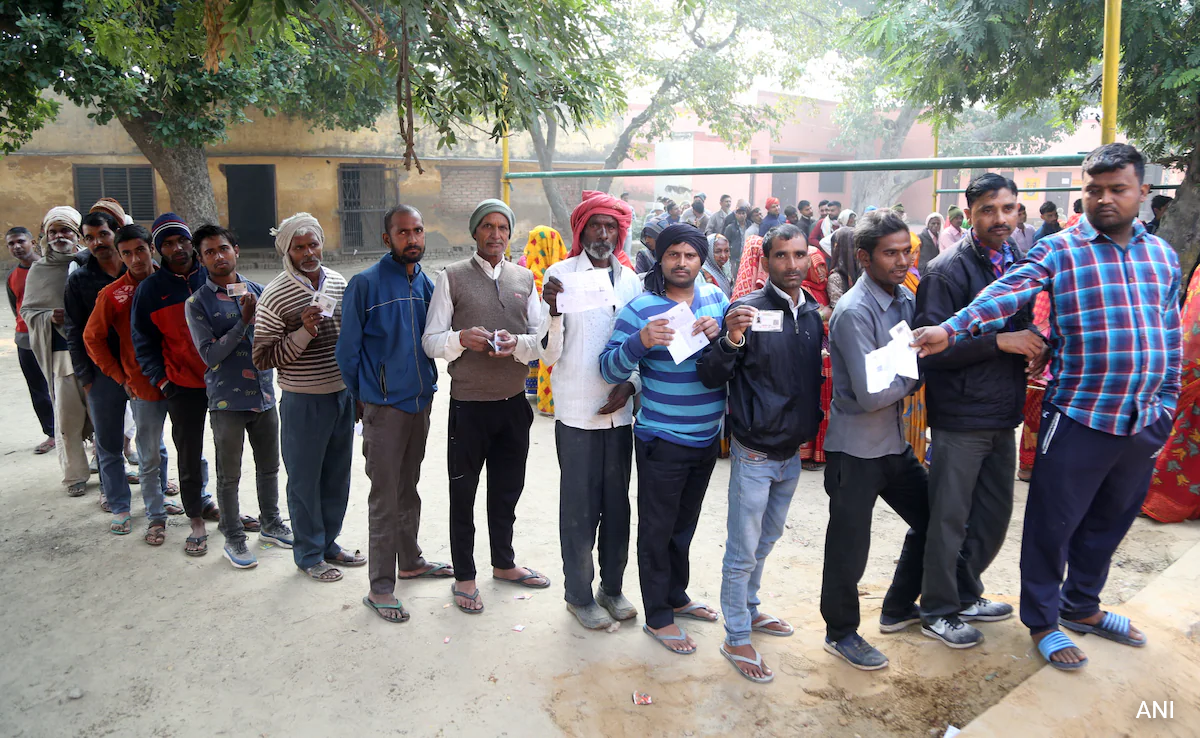
The Global Risk Report 2024 from the World Economic Forum (WEF) states that misinformation is one of the greatest threats countries around the world are faced with. India, the largest democracy in the world, is identified as one of the nations with the most significant risks associated with disinformation and misinformation. This is particularly important as India concludes its national elections and over 50 countries around the world go to polls this year. What an unprecedented time and a test for democracies globally! There is so much to learn from Indian elections in terms of how misinformation vectors circulate in different formats, languages and regions online.
The media and information landscape is evolving rapidly in India as more and more people gain access to the internet, mostly via their phones. Today, more than half of Indians - 870 million people - are active internet users. This is creating a new challenge as reliable sources of news are frequently drowned out by unverified information online.
We are increasingly learning from elections worldwide that misinformation has the potential to deceive voters and undermine their trust in the electoral processes. People are growing up in a world with more choices for information than what was available at any point in human history. This creates a major problem as people struggle to distinguish between truthful and false information. Research says that the more individuals are exposed to falsehoods, the more likely they are to believe them, even when the information contradicts their existing beliefs. In such a scenario, elections become a hotbed of contestations.
The commitment to preserving the values of democracy and the sanctity of voters' decisions based on facts led to the creation of Shakti-India Election Fact-Checking Collective, supported by the Google News Initiative. It is spearheaded by DataLEADS in partnership with the Misinformation Combat Alliance (MCA), BOOM, The Quint, Vishvas News, Factly, Newschecker, among other leading fact-checking organisations and news publishers like India Today and the Press Trust of India (PTI). The project is a coalition of Indian fact-checkers and publishers that came together in the run-up to the 2024 India elections to enhance the early detection of election-related misinformation and deepfakes, as well as amplify the dissemination of fact-checks in regional languages. This is the biggest collaboration so far in India between fact-checkers and publishers to fight misinformation.
In India, as part of the Shakti Collective, it was incredible to see how diverse news organisations, including competitors, came together to address misinformation. Nearly 50-plus organisations, comprising prominent fact-checkers and established newsrooms, big and small, from across the country, joined hands to be part of the collective. Every single day in the last three months, over 260 fact-checkers, reporters and editors collaborated to identify misinformation and combat harmful and misleading content, conspiracy theories, bogus poll surveys and AI-generated deepfakes. Publishers joined in and amplified the fact-check content and protected millions of voters from poll-related misinformation. This election fact-checking effort has been supported by deepfake and synthetic media experts from renowned institutions such as the Indian Institutes of Technology (IITs) and leading AI organisations. These experts emphasised the crucial role that tools and technology play in debunking misinformation, particularly deepfakes.
Our previously initiated work in the field of fighting misinformation has led to training and capacity-building programmes throughout India and beyond. Supported by the Google News Initiative, we run one of the world's largest training networks, which has benefited hundreds of newsrooms and thousands of journalists in more than 10 languages across India. Journalists within the network were chosen through an open-call process, followed by the implementation of Train the Trainer (ToT) programmes in various languages nationwide. These journalists, stationed across India, have since emerged as ambassadors of the network dedicated to debunking misinformation and fostering a robust information ecosystem. FactShala, India's largest media literacy network, has enabled diverse communities and individuals around the country with tools and approaches to consume information critically and responsibly.
It is because of these efforts that India has the largest number of fact-checkers in the world today who are at the frontlines in the global fight against misinformation. This is a stark contrast to 2018, when there were only two-three fact-checking organisations in the country. India has 17 International Fact-Checking Network (IFCN)-certified fact-checking organisations today. The United States, by comparison, has 12.
Our efforts have consistently been focused on building resilience against misinformation and empowering journalists, newsrooms and engaged citizens with tools to fight the menace of mis- and disinformation. The goalpost of Shakti-India Election Fact Checking Collective aligned with this collaborative mission - to build a society that values and thrives on the critical consumption of information.
The future poses a formidable challenge to democracy in India as misinformation continues to batter trust in democracy and its allied institutions. Given the number of elections happening around the world this year, it will be exceedingly challenging to identify and combat AI-generated harmful content in a timely manner. Misinformation tactics travel fast from one country to another. It will be a challenge for newsrooms to monitor and check the content from diverse regional languages unless there is a concerted and focused collaborative effort towards addressing such facets of the larger information ecosystem.
The Shakti collaboration provides significant insights and reveals emerging patterns of election-related misinformation in India, particularly during the election period. Most election misinformation was found in visual content, such as images and videos. But misinformation also involved cloned voices of key celebrities and youth icons, aiming to influence first-time voters and youth. The misinformation campaign mostly targeted key political leaders, parties and their manifestos, and election processes, including EVMs and VVPATs, among others. While a high number of election-related deepfakes were anticipated, the incidents involving deepfakes were fewer than what was expected during the elections. There was also a spike in misinformation in regional languages, mostly related to EVMs being rigged and manipulated. There was comparatively less violence; in the 2019 polls, a few states witnessed violence that largely contributed to a lot of disinformation and hate campaigns, including hateful songs on social media, which was relatively lower this time. Also, the misinformation/disinformation was multi-dimensional; it didn't affect one political party. All political parties were at the receiving end, including the ruling party.

There is a lot of learning from Indian elections about how misinformation vectors move from one platform to another and how they become viral. The insight can be useful in developing tech solutions to address election-related misinformation and for content monitoring and fact-checking elections in other countries.
Given the change in the information landscape globally, it is high time we exemplified collaboration, trust, and resilience to minimise the impact of misinformation and foster a more informed and resilient society. One of the key interventions under the Shakti Collective is the attempt to tackle the primary challenge of reach and amplification of fact-checks to build a shield against misinformation. Fighting misinformation remains a complex task that will necessitate innovation and a deeper understanding of information consumption patterns. Together, we need to stand guard at the sanctimonious gates of democracy to fight the demon of misinformation.
Toni Morrison famously said, "When you get these jobs that you have been so brilliantly trained for, just remember that your real job is that if you are free, you need to free somebody else. If you have some power, then your job is to empower somebody else." This has to be the spirit to build community surveillance and intelligence against misinformation, to empower citizens and set them free from competing narratives intended to mislead them, to guard them against misinformation intended to erode their trust in society, and not let devious actors dismantle the integrity that elections hold in a pluralist society.
(Syed Nazakat is Founder and CEO of DataLEADS.)
Disclaimer: These are the personal opinions of the author


